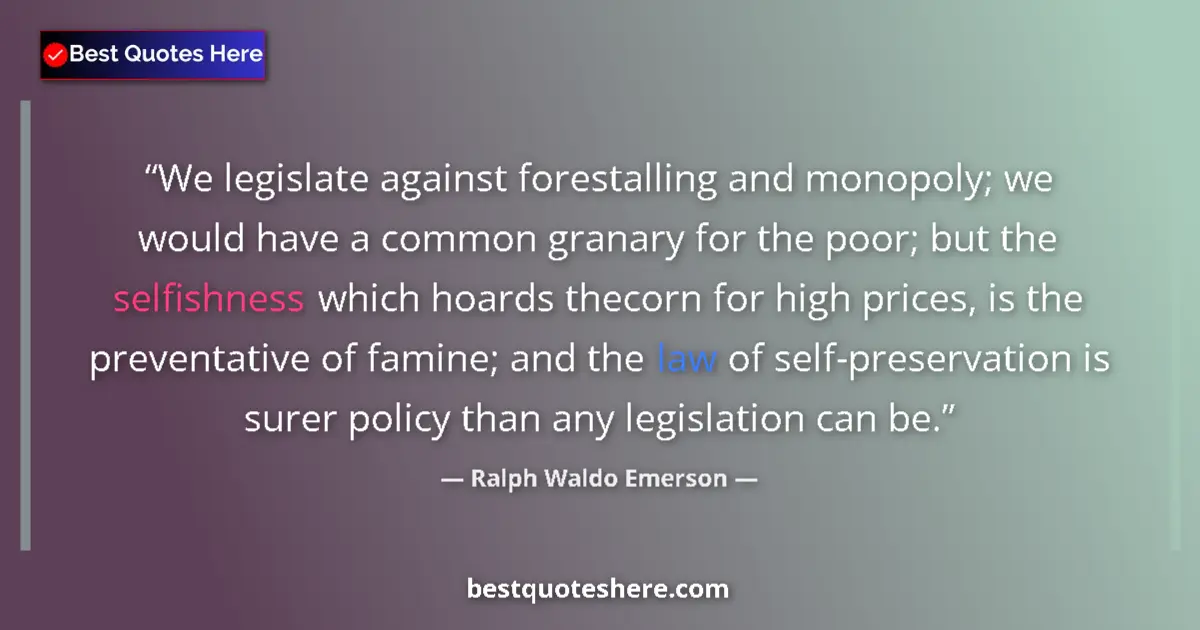"We legislate against forestalling and monopoly; we..." - Quote by Ralph Waldo Emerson
We legislate against forestalling and monopoly; we would have a common granary for the poor; but the selfishness which hoards thecorn for high prices, is the preventative of famine; and the law of self-preservation is surer policy than any legislation can be.

More by Ralph Waldo Emerson
“Sorrow makes us all children again -destroys all differences of intellect.The wisest know nothing.”
“To the young mind every thing is individual, stands by itself. By and by, it finds how to join two things and see in them one nature; then three, then three thousand; and so, tyrannized over by its own unifying instinct, it goes on tying things together, diminishing anomalies, discovering roots running under ground whereby contrary and remote things cohere and flower out from one stem.”
“We must be lovers, and at once the impossible becomes possible.”
More on Selfishness
“Most of us are consumed with our own thoughts and desires and are not always thinking about what other people may want. This is not necessarily being egocentric; it is just being human.”
“It’s in our interest to take care of others. Self-centrednes s is opposed to basic human nature. In our own interest as human beings we need to pay attention to our inner values. Sometimes people think compassion is only of help to others, while we get no benefit. This is a mistake. When you concern yourself with others, you naturally develop a sense of self-confidence . To help others takes courage and inner strength.”
“There has been something crude and heartless and unfeeling in our haste to suceed and be great. Our thought has been 'Let every man look out for himself, let every generation look out for itself,' while we reared giant machinery which made it impossible that any but those who stood at the levers of control should have a chance to look out for themselves.”
More on Law
“the study of the law is useful in a variety of points of view. it qualifies a man to be useful to himself, to his neighbors, & to the public.”
“We may consider each generation as a distinct nation, with a right, by the will of its majority, to bind themselves, but none to bind the succeeding generation, more than the inhabitants of another country.”
“The only safe and honorable course for a self-respecting man is to do what I have decided to do, that is, to submit without protest to the penalty of disobedience ... not for want of respect for lawful authority, but in obedience to the higher law of our being, the voice of conscience.”